It’s fair to say that no single person has had such a powerful and lasting effect on modern-day South Africa as Nelson Rolihlahla Mandela.
His memory lives on in the minds of the people and is immortalized in statues, museums, exhibitions and monuments across the country.
As a visitor to South Africa, if you hope to gain an insight into the country’s psyche, its people and its past, you simply cannot leave without having visited at least a couple of the country’s insightful memorials to one of the world’s greatest leaders. In honor of Nelson Mandela International Day on July 18, 2022, here are 10 of the top places to follow his legacy throughout South Africa.
Apartheid Museum, Johannesburg
To understand South Africa’s complicated society – and Mandela’s importance within it – you need to look to the past. Apartheid, the segregationist system that ruled the country from 1948 to 1994, infiltrated every aspect of daily life: education, employment, freedom of movement, the train you took, the hospital you went to – even which beach you chose to bathe at. The policies shaped Mandela’s entire life and nowhere can you get a better grip on those heartless rules than at the Apartheid Museum, south of Johannesburg. It’s an emotional visit, but the interactive exhibits and wealth of information make the museum an absolute must. Allow at least two hours if you hope to soak it all up.
The 5 best Johannesburg day trip
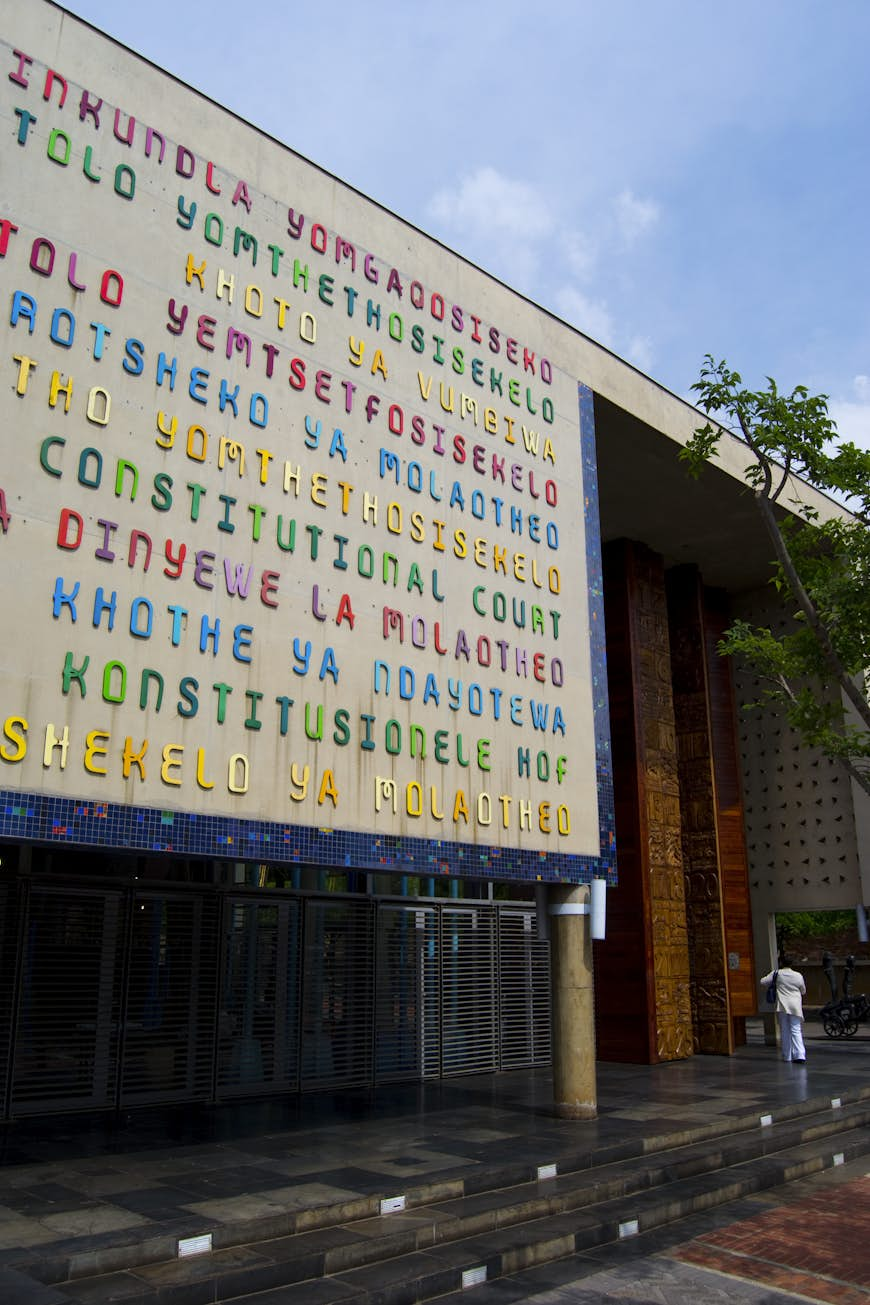
Constitution Hill, Johannesburg
These days, Constitution Hill in Johannesburg is a chilling museum and home to South Africa’s constitutional court, but it began life as a prison back in 1893. Mandela was imprisoned here twice – first in the infamous 1956 Treason Trial, when all 156 defendants were eventually acquitted, and again in 1962 following his arrest in KwaZulu-Natal. He was deemed too influential to house with the other black male prisoners in the notorious Number Four section of the prison and became the only non-white prisoner to be incarcerated in the Old Fort. A walk through Number Four, reading up on the horrific conditions of the time and the difference in how prisoners of different races were treated, quickly hammers home the need for political reform and equality for which Mandela was fighting.
Johannesburg’s best neighbourhoods to explore
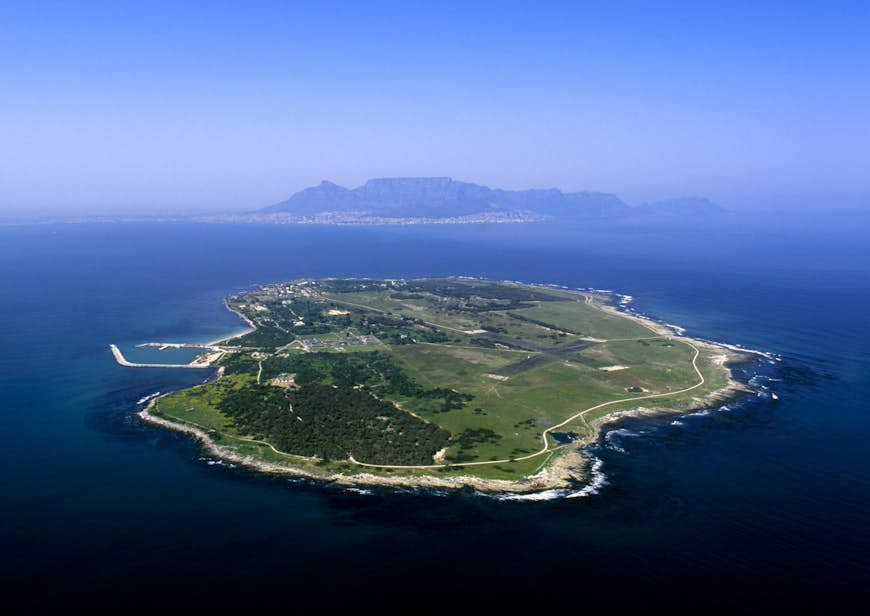
Robben Island
Nelson Mandela spent 27 years of his life incarcerated and served most of his sentence on a forlorn, five-sq-km island off the coast of Cape Town. Trips to Robben Island begin at the V&A Waterfront, where ferries transfer you to the former prison. It’s a highly regimented day out, which takes you from ferry to bus tour and eventually on foot to shuffle through the prison.
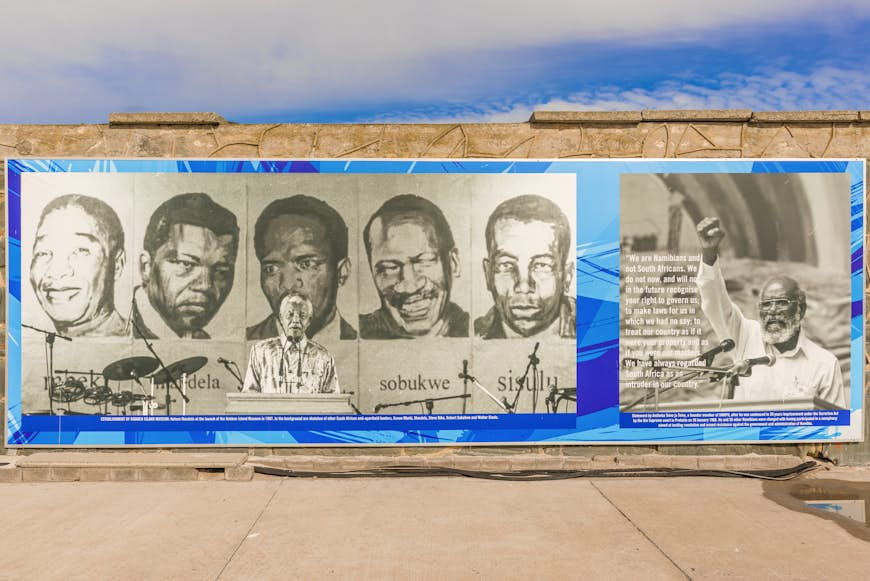
Try to hang back from your group to spend a little time contemplating the implausibly poky cell where Nelson Mandela spent 18 unimaginably difficult years and yet emerged with a heart filled with forgiveness rather than hatred.
Johannesburg walking tours: a great first step into the city
Nelson Mandela Museum, Mthatha
The Eastern Cape is rightly proud of its most famous son, and in the otherwise unlovable town of Mthatha sits an homage to Mandela. The stately Bhunga Building houses the Nelson Mandela Museum, where you can dig a little deeper into the essence of the man everyone hereabouts calls Madiba (his clan name). Imagine chatting to extended family and getting a deeper insight into Mandela’s life, and you get the idea of this humble but interesting museum. On show are handwritten notes from the former president and some lesser-seen photos. Letters and gifts sent to Mandela offer a look into how he was adored not just locally, but around the world.
I toured Robben Island prison with Nelson Mandela’s former guard and close friend
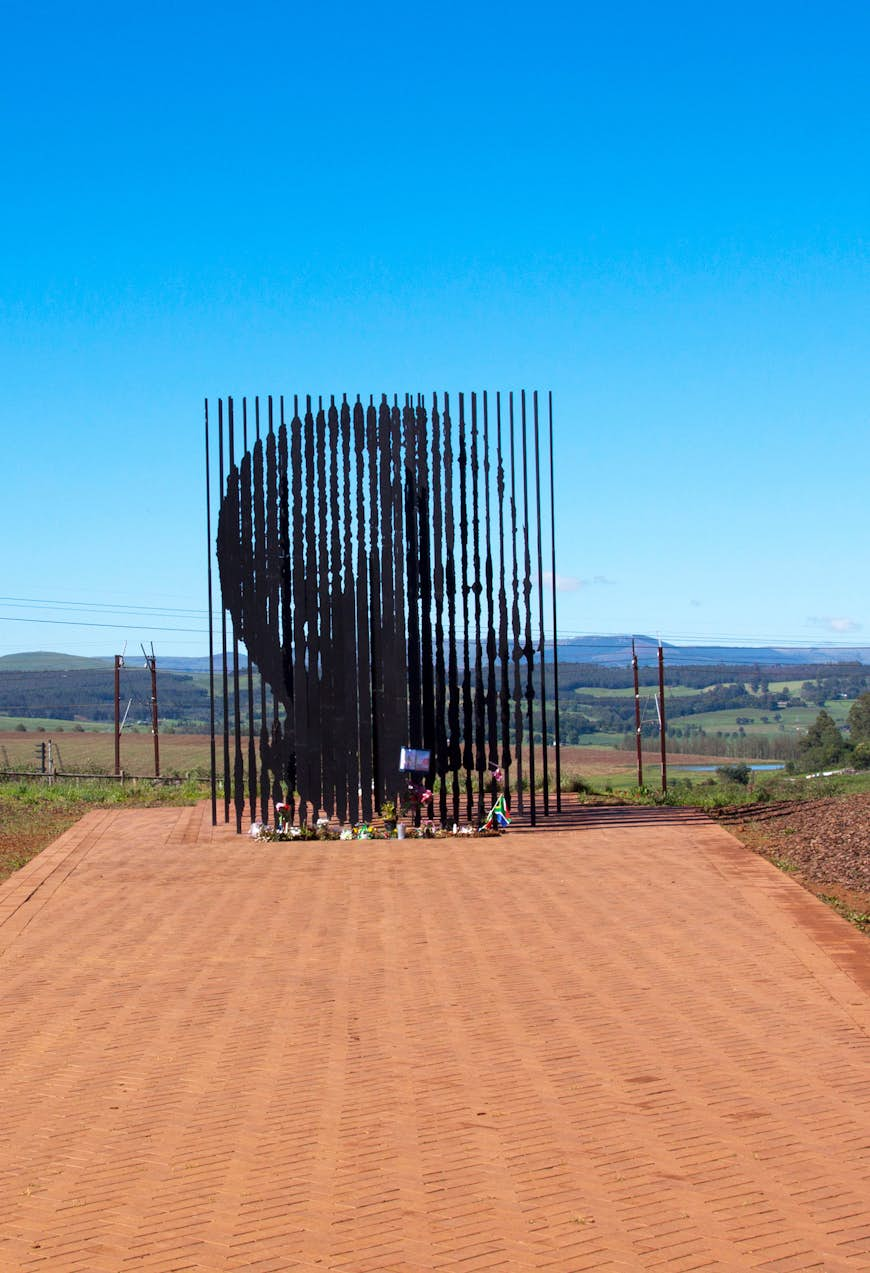
Capture Site
For years, the only thing marking this historically important site at Howick was an unassuming plaque at the side of the road. It was here in 1962 that, following 17 months of evading the apartheid authorities, Nelson Mandela was arrested. The revamped Capture Site is a far more befitting monument to an event that in many ways would go on to shape the future of an entire country. As you approach the sculpture, the 50 metal rods align to create a magnificent portrait of Mandela. Other exhibits are still in progress, but there’s a great little café where you can sit and contemplate history with an excellent cup of joe.
The top 8 hikes in South Africa for stunning views
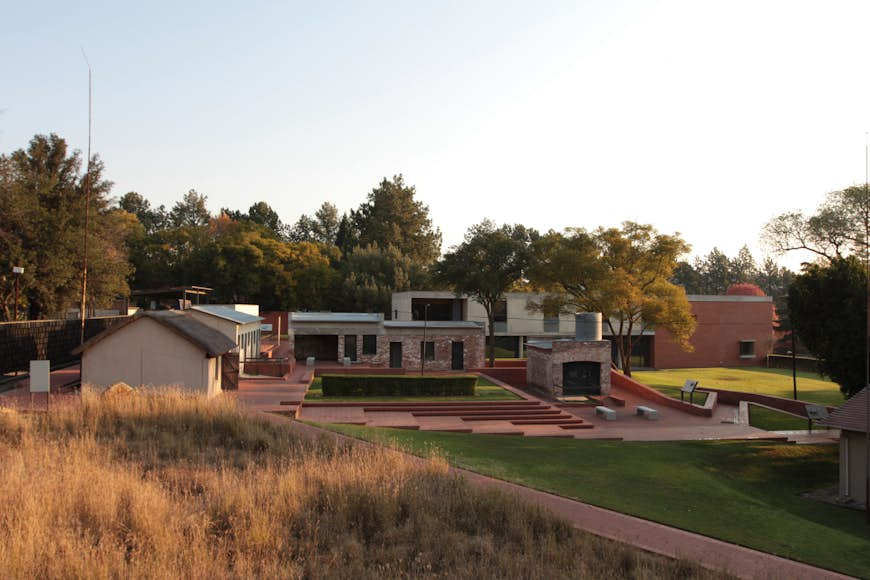
Liliesleaf Farm, Johannesburg
When Nelson Mandela lived at Liliesleaf Farm, he went by the name of David Motsamayi and, at least to a passer-by, was employed to tend the grounds. This was in fact the underground headquarters of the ANC, where Mandela lived incognito for a year. When the authorities raided the grounds in 1963, making numerous arrests, Mandela was already in custody but he ended up being tried with his comrades and sentenced to life in prison for plotting to overthrow the state. The whole story is now told in excellent detail through interactive, audio-visual exhibits. Its 25km distance north of Johannesburg city center tends to keep Liliesleaf flying under the radar, meaning you’ll have more space here than at many of the Mandela-related sites. Allow a couple of hours to fully explore what is one of South Africa’s finest museums.
How to live like a Local in Johannesburg
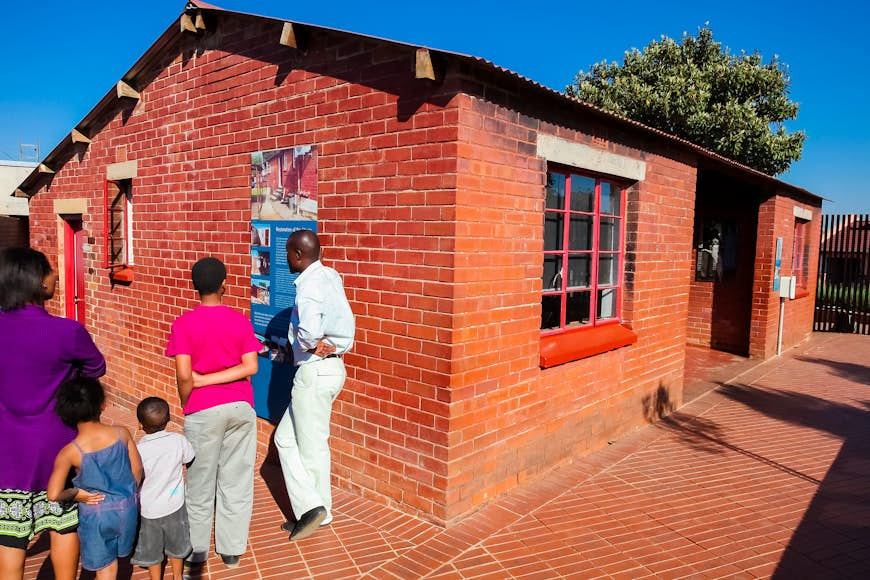
Mandela House, Soweto
Mandela moved to this humble home in Soweto in 1946. “It was the opposite of grand,” he wrote in his autobiography, Long Walk to Freedom, “but it was my first true home of my own and I was mightily proud.” He lived here with his first wife Evelyn and later with second wife Winnie and their children, returning very briefly following his release from prison in 1990. Soon afterwards the house was converted into a museum, preserved as it would have been when Mandela lived here.
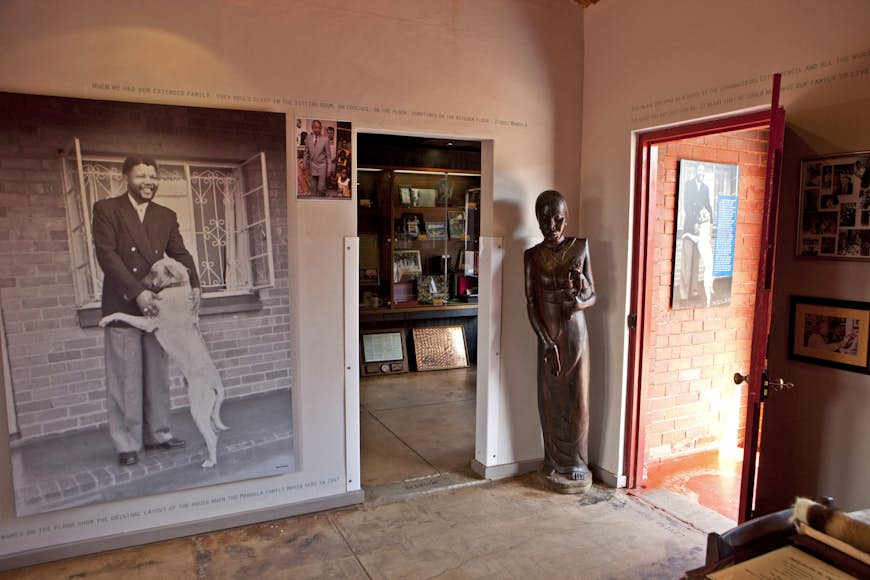
If you’d like to contemplate Mandela’s life in Soweto, you’d do well to arrive early. Vilakazi Street can get very busy and once the tour groups arrive you’ll be sharing your visit to Mandela House with plenty of others keen to get a few snaps of the famous family home.
The top 19 beaches in South Africa for sand, surf and scenery
Qunu, Eastern Cape Province
For the die-hard Mandela disciple, a trip to rural Qunu is the ultimate pilgrimage. This is not just the place where he grew up, where he attended school and was given the Christian name that the world knows him by – this roadside village is also Mandela’s final resting place. There are simple exhibits at the Nelson Mandela Youth & Heritage Centre, but you really need a local guide to fully appreciate the sites in the small hamlet, including the remains of Mandela’s school, the church where he was baptised and a few other sites you will recognise if you’ve read Long Walk to Freedom. Here you’ll find a special reverence for the man the villagers simply call Tata – father.
The top 8 hikes in South Africa for stunning views
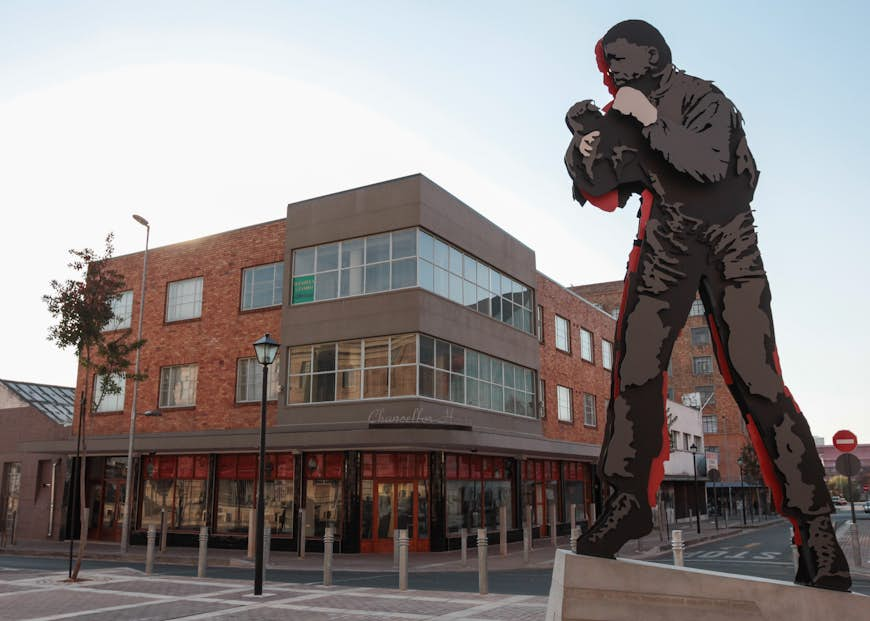
Chancellor House and the Shadow Boxer, Johannesburg
If you happen to be exploring the streets of central Johannesburg – and you really should, since its regeneration is nothing short of remarkable – make a detour to Fox Street. Chancellor House itself isn’t much to look at, but an important part of Mandela’s life happened within these walls. It’s here that he shared a law practice with fellow struggle icon Oliver Tambo. Information panels face out through the ground floor windows, so you can read up on their fight against the apartheid regime at your leisure. Opposite is the six-metre-tall Shadow Boxer, a sculpture commemorating one of Madiba’s preferred pastimes. Even more impressive is the colossal 40-metre-high mural based on the same photograph of a boxing Mandela – you will find it painted onto a wall in Johannesburg’s Maboneng district.
City Hall and Grand Parade, Cape Town
At the moment there is nothing marking the spot where Mandela gave his first speech as a free man in 1990. Crowds gathered in Cape Town’s Grand Parade to cheer on the newly released struggle icon. “Your tireless and heroic sacrifices have made it possible for me to be here today,” he said from the balcony of City Hall. “I therefore place the remaining years of my life in your hands.” Realising the he importance of this site, the City of Cape Town is in the midst of plans to erect a life-size statue of Mandela on the very balcony where he delivered the speech.
